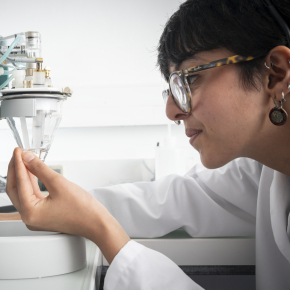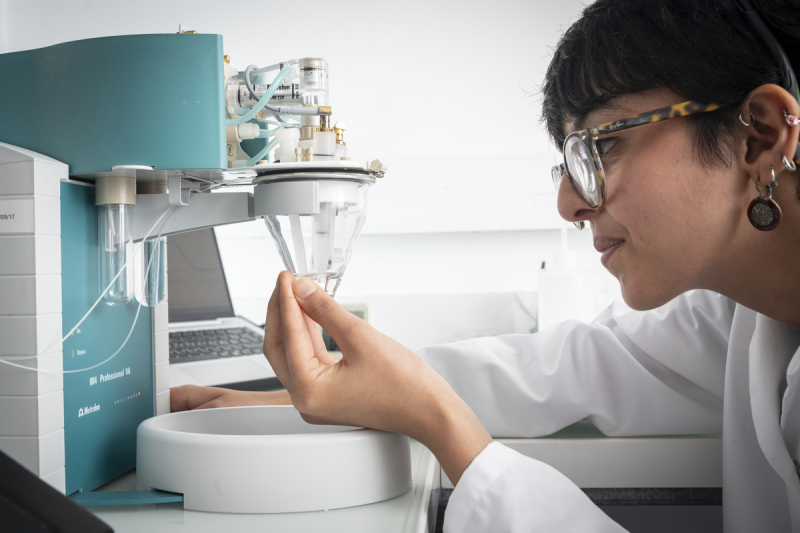Six interdisciplinary challenges – basic research serving society
The CNRS has launched six new interdisciplinary challenges to structure research communities to work on key questions, at a time of strategic importance for emerging breakthrough discoveries.
The brain, materials of the future, life in the Universe, limitless instrumentation, generative AI for science, and societies in transition - these are the six themes chosen to be the CNRS's six interdisciplinary challenges for the coming five years. "The CNRS aims to make substantial contributions in these areas in the medium term," explains Alain Schuhl, the CNRS's Deputy CEO for Science.
But how exactly? By making the most of one of the CNRS's main strengths, namely multidisciplinarity. As the Deputy CEO for Science sums up, "the great scientific challenges of today and tomorrow call for the coordinated mobilisation of all the disciplines which is something only the CNRS can do so effectively".
Tools for communities
The organisation is basing this on the experience acquired through working on the six previous social challenges from the COP 2019-2023 which created "a real dynamic" and led to "significant spin-off benefits". For example, the ‘Educational Inequalities’ challenge led to a research network being set up, thus helping to break down barriers within a community that had previously been organised in silos and to establish interdisciplinary education research as a respected and relevant field. The ‘Territories of the Future’ challenge led to the development of interactions with local stakeholders in the Marseille and Clermont-Ferrand metropolitan areas to drive and study systemic approaches to the concept of the habitability of territories in the present and the future. Similarly, the multidisciplinary Artificial Intelligence For Science, Science For Artificial Intelligence Centre (AISSAI) has accelerated scientific discoveries by involving all the disciplines in AI research. "Each challenge set up useful tools for our scientific communities that will continue to help research advance in these areas," notes Alain Schuhl.
The six previous challenges directly addressed societal issues whereas the six new cross-disciplinary challenges are more focused from the outset on well-identified scientific questions or research issues. "Of course, they only represent part of the CNRS's activities", explains Alain Schuhl and were chosen for their scientific relevance and the multidisciplinary approach they require. Another reason for these choices is that "it was the right time to get to grips with them" because a recent technological or conceptual leap forward, or prospects for such advances, revealed "potential for making major advances and accelerating knowledge in the years to come as long as people with the right skillsets are brought together".
The objective moving forward is to structure the scientific communities by creating specific tools for each community and allotting a significant proportion of new recruitments of permanent researchers to them.
Topical issues
This is why it was essential to include materials. "Materials are everywhere and have applications in a broad variety of fields like health, buildings, mobility, energy and communications," explains Franck Molina, who represents the CNRS Engineering Institute for the 'Materials of the Future' challenge. Currently in this area there are "issues of sovereignty and/or criticality because many materials are rare or hard to access" coupled with strong societal demand for more efficient materials that are also economical, sustainable and environmentally friendly. In fact, research questions abound in this area linked to issues like the entire life cycle of materials, new compositions, bio-inspired or bio-sourced materials, intelligent, adaptable materials, materials designed by AI and so forth. "We're currently looking at several forms of action to identify expertise and drive research - inviting international experts, organising specific seminars, calls for projects, supporting innovation and joint conferences with our industrial partners and even launching a materials of the future award," relates the researcher.
"The aim isn't to be exhaustive and solve every possible research question", explains Alain Schuhl. On the contrary, what is required is to "identify a scientific question that hasn't been dealt with and propose an emblematic action likely to make a real difference thanks to the multidisciplinary response the CNRS can provide". The mission of the working groups is to find solutions that complement existing knowledge and build on them in the long term.
Roadmaps for the long term
"We aim to share knowledge and change the way it's used", explains Dominique Joly, a deputy scientific director with CNRS Ecology & Environment who represents the team working on the 'Instrumentation without Limits' challenge. Cutting-edge instrumentation is crucial for top-level scientific research, particularly in the other interdisciplinary challenges. How could scientists study the brain without miniaturised sensors, work on societies in transition without frugal distributed sensors or delve into the Universe without cutting-edge technologies that go beyond the limits of sensitivity? In return, basic research feeds into technological advances and helps transform the design and use of the scientific instruments of the future in terms of precision, portability or AI-optimised performance. This is particularly the case at the CNRS. Ms Joly sees the organisation as "a veritable FabLab bringing together a broad range of professions and skills with practices that need to be decompartmentalised. We'd like to propose a hybrid, co-constructed instrument-based approach that follows the compass of the major scientific questions and societal issues, including frugality and sustainability," assures the researcher.
To achieve all this, the CNRS's Mission for Transversal and Interdisciplinary Initiatives (MITI [in French]) will be running calls to support work on these six challenges.
These challenges were also highlighted in the Objectives, Resources and Performance Contract (COMP) the CNRS and the French government signed last March. "The aim of these challenges isn't to obtain scientific results just for the duration of the COMP which would be illusory but rather to devise, launch and firmly ground mechanisms and tools in the research landscape over this period to support the multidisciplinary dimension of these challenges’, Alain Schuhl sums up. The foundations for structuring roadmaps that are "equal to the CNRS's ambitions and drive the emergence of new multidisciplinary dynamics to emerge" must be in place by the summer.
Six major challenges for CNRS by 2030
Dive into the heart of the CNRS' 6 challenges to discover how basic research benefits society.

